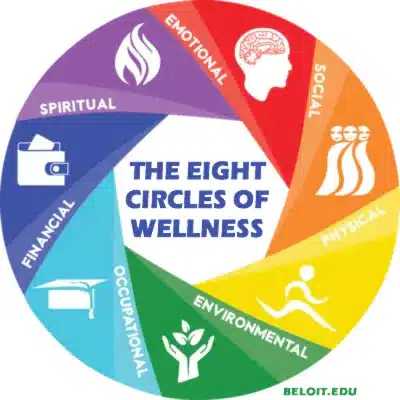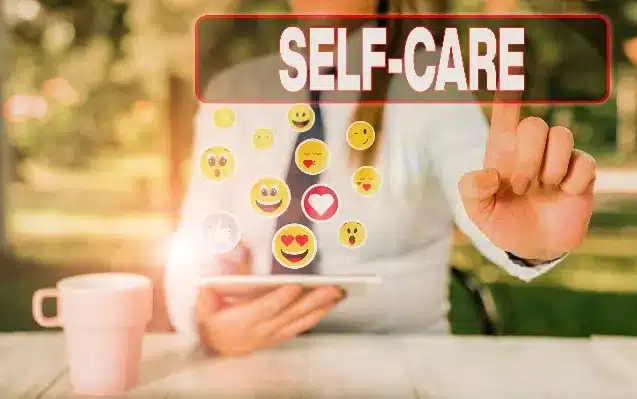Living in one of the largest metropolitan cities in the United States, the citizens of Phoenix have certainly heard of this thing called “hustle culture” which has caused high stress, anxiety, and even complete meltdowns for some over this past last decade. Here is a snippet from Monster.com to help us better understand this phenomenon…
What Is Hustle Culture? Also known as burnout culture and grind culture, hustle culture refers to the mentality that one must work all day every day in pursuit of their professional goals. In the 21st century, thanks in part to the Great Recession of 2008, overworking became popular among younger generations who felt like they needed to work long hours and start a side business to achieve success in a tough economic climate. Positive depictions of “rise-and-grind culture” (especially on social media) quickly normalized working harder, faster, and longer.
The Main Benefits of Hustle Culture
MONEY: Of course, the obvious benefit from working long hours would be a monetary boost – but that is not a given if the wages are still very low. If there are incentives in place to reward the extra hours and extra productivity, then the extra work can be beneficial in helping pay bills and get ahead in areas such as home, car, healthcare, travel, etc.
MOTIVATION: Another benefit of the hustle work culture is that individuals who grew up as children with little structure and few responsibilities are now quickly enmeshed in an environment where they can channel motivation and learn to be responsible and productive.
Surely there are other benefits for overworking, but mainly those are reaped by those you are working for. Now if you are working for a good cause, then you are giving a boost to charity which can make you feel good about yourself, but you still need balance to avoid burnout – no matter who or what you are working for.
The Unfortunate Drawbacks of Hustle Culture
This new “work, work, work” way of life can absolutely lead to burnout. The grind mentality can lead to workaholism or a general lack of balance between personal and professional life. When you aren’t engaging in self-care, you can become irritable, demanding, and have overly high expectations of coworkers and friends/family as well. When you don’t allow time to regroup, you lose the ability to become a creative problem solver as you are just focused on quickly tackling task after task.
The hustle mindset can also be linked to perfectionism, which is not something we want to aspire to be. Endorsing perfectionism can ultimately lead to procrastination. With perfectionism, the bar is always set too high so there is very rarely any satisfaction when completing tasks and they’re always in self-critic mode. Perfectionists rarely stop to notice what they did well on a job and this tends to enable the hustle culture even more.
Is Hustle Culture Harder on Women?
It definitely can be. Since women are the ones having children and there is an internal clock to begin a family, that can affect the hustle to move up in the career faster. Women aren’t often given the same pay or equal consideration for the same job – especially when the hiring managers know they may need accommodation for their families so they may not be able to devote as much time as a male candidate. Additionally, women who are working all the time may have to outsource things like childcare, house cleaning, getting the kids to their activities, etc – which incurs extra costs to afford the help and that, of course, further perpetuates the need to hustle more. It’s a catch 22!
Young Adults Are Fed Up with This Grind Mentality
And recently that has led to something new coined “the Great Resignation”. Since the Covid-19 pandemic started, millions of workers under 40 have left their traditional jobs to take sabbaticals and live off savings while trying to find more accommodating careers.
Time.com explains “the Great Resignation offers young workers time to nurse the wounds of pandemic burnout and untenable working conditions with dramatic life changes.”
And this plan could work out if they find the right new workplace or self-employment paths. However, if they don’t, they could be flipping jobs quite a lot which could cause other stress and self-esteem issues. This high, constant turnover is also leading to other staff not having good support and role models to learn from who are experienced in the position.
Finding Balance Within a Burnout World
Therapists often reference the 8 circles of wellness to allow for balance and positive mental health and professional goals is only ONE of those pillars – so obviously working all the time is not a way to live a healthy life. Many companies are recently starting to recognize that balance and mental health are important for retaining productive employees. They are incorporating mandatory scheduled breaks and leaving the office (or the WFH desk) at the actual daily quitting time.
Speaking of working from home, now it’s difficult to avoid overworking and setting boundaries, so defining guidelines for yourself that you won’t read or respond to messages during your scheduled off-hours is imperative. If you do respond at all hours, it sets your supervisor’s expectations that you are always available and perpetuates the chain of hustle and grind. It’s also very important to take at least one or two days off each week and take a restful and restorative vacation each year.
If someone sets an intention for the week and they plan what work will be done, then a disciplined person can indeed benefit from that sense of hustle. This requires the ability to stay true to themselves on what they planned and being mindful of other parts of their life and not just work – friendships, family, service, faith, etc.
Sometimes, you need to have the expectation in certain careers that there are times for you to hustle harder than others, for examples doctors on the ER rotation, realtors on weekends, and students during finals. When you know that certain shifts and times of year are busier than others then you can have the right mindset to know to expect that and you can offset some of your self-care for the slower times.
If you don’t set aside time to care for yourself, your mental and physical health will eventually suffer.
It’s imperative that you make and take the time to do things that are completely unrelated to work. This can be things like watching TV for an evening, preparing healthy meals, exercising regularly, getting enough sleep, laughing with friends, reading fiction, getting outside and appreciating nature, etc. And I can’t believe I haven’t said this directly until now, but you need to set boundaries with your work so as not to let them intrude on this self-care time, because they will surely try if you allow them. Remember, self-care isn’t selfish!
Keep Reading
Want more? Here are some other blog posts you might be interested in.











